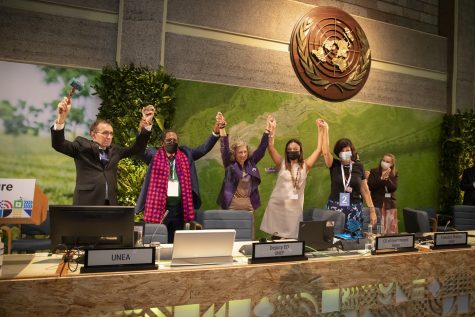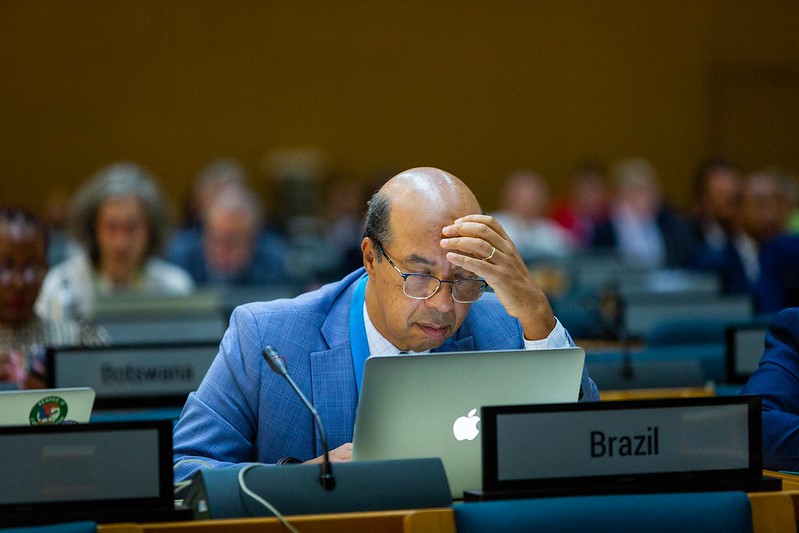StudGov Receives Formal Warning From UN Environment Program
The headquarters of the United Nations Environment Programme were awash with noise as delegates from 193 nations readied themselves for debate. Everywhere one looked, dossiers were being pulled from folders and expressions of grave professionalism were being donned. The mood in the chamber was solemn, even grim, as the director slammed his gavel down on the table, signaling the beginning of the session. Collectively, the committee held their breath as the pressing query of the day was brought to light: what should be done about Lakeside’s StudGov election posters?
The issue, admittedly, is not a new one: every February, campaign posters reliably begin to pop up all over Lakeside’s campus like mushrooms after rain, each showing off their respective president-hopeful in increasingly creative (and flashy) ways. Truly, they have become an inescapable part of the student experience: staring down at students on the stairs of Allen-Gates, presiding over the lunch line from the top of a WCC door frame, and vying for space in the entryway to Pigott, the posters are there, whether you like them or not.
But this year, the amount of posters tacked up around the school increased exponentially. Taking a stroll through the campus during the height of election season, it would not be all too far-fetched for one to assume that entire forests had been put through the shredder to fuel an effort of this magnitude.
This phenomenon h as certainly not gone unnoticed by the student body, either. In the latest edition of the Tatler Poll, one concerned environmentalist remarked that they “appreciated the hallway posters, less so the mass influx of murdered trees.” Other statements echoed along the lines of “interesting, but excessive,” and “there’s too many, save the trees.” Yet another one of Lakeside’s resident nature-lovers even observed, “[candidate name]’s paper usage [is] ballooning harder than the Chinese communist party.”
That’s not to say that the posters were universally disliked– in fact, many students seemed to enjoy the amount of thought that had gone into them. One poll respondent described the posters as “very fun,” and noted that they gave candidates “lots of opportunities to show off their artistic skills.” Another stated, “I liked seeing how creative they were, and the weird placements gave me some joy.”

Needless to say, the UNEP did not share those viewpoints. After three days of rigorous and concerted debate, they came to the conclusion that this madness had to stop. First and foremost, a diplomatic envoy was sent posthaste to Stockholm in order to check in on Greta Thunberg in this trying time. Sources reported that the distraught climate activist called for a total boycott of all StudGov elections, only to realize that the three-hour voting window had already taken care of it.
Following that, an ad hoc committee was formed for the express purpose of drafting and sending a strongly worded letter of admonition to StudGov. “Never before have we taken such direct and drastic action,” remarked the committee’s director. “This initiative can truly be considered one of the most radical suggestions ever suggested by the UN.” During the same meeting, an intern briefly called into question the environmental implications of sending a (paper) letter from Nairobi to Seattle in its own private plane. The whereabouts of this intern are currently unknown.
Upon receiving the letter, Stud Gov reportedly entered into talks with the UN in order to remedy the aftereffects of this devastating crisis. However, due to the fact that their main method of communication is a seasonal newsletter, experts advise Lakesiders to not hold their breath in the wait for a formal response.
Since COVID, Amber has branched into a journalism as a passion, with inflammatory articles like replacing the Quad with a parking lot to "eliminate the...

